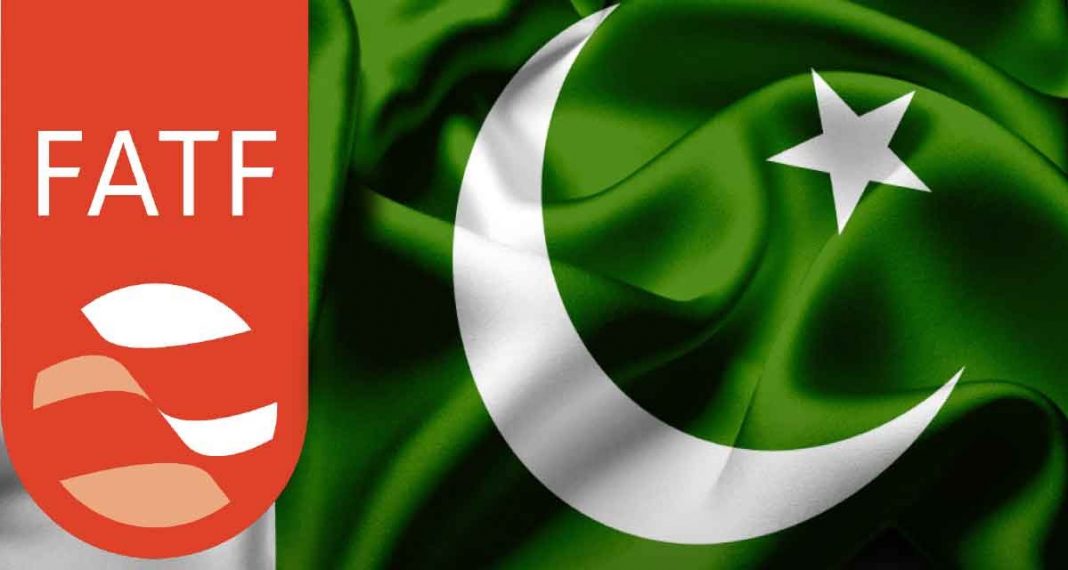The Special Financial Action Plan (FATF) is the intergovernmental organization created in 1989 to address the legitimacy of the international financial sector, the war on money laundering, terrorist financing and other related challenges.
The FATF also has 39 branches, plus the European Commission and the Gulf Cooperation Council, two international organizations.
What Is FATF And Its Implications For Pakistan’s Economy
In June 2018, Pakistan was put on the gray list by the Paris Global Money Laundering and terrorist financial watchdog and asked Islamabad to introduce an action plan to limit money laundering and terrorist financing by the end of 2019.
In August, debt-ridden Pakistan sought to remove 88 illegal militant organizations and their leaders from the GAFO’s gray list and enforced financial restrictions that included a 26/11 Mumbai attack by the leader of Jamaat-ud-Dawa (JeD), Hafiz. Saeed president, and Jaish-e-Mohamed (JeM) Masood chief Azhar chief and Dawood Ibrahim chief underworld.
Based on a check on Islamabad’s success in terms of global obligations and standards of money laundering and terrorist financing (ML&TF), the virtual plenary scheduled for 21-23 October will determine whether or not Pakistan is removed from its gray list.
In September the joint session of parliament amended about 15 laws to refine its legal framework, as mandated by the GAFO. The government has already submitted its report and responded to its comments, describing the implementation of the remaining 13 acts to the FATF and its related monitoring groups.
Opportunities Of Pakistan To Get On The Blacklist Or Not?
This month’s FATF meeting will discuss the implementation of Pakistan’s remaining 13 parts of the action. In the case of violations of terrorist finances related to the commitment to risk control and financing of terrorist sanctions, the GAFO will determine whether the government has shown correct remedies and sanctions.
The government’s key areas of intervention include the successful implementation of targeted financial sanctions, including avoiding the acquisition and transfer of funding, detection and freezing of property (movable and immovable) against all 1,267 and 1,373 identified terrorists or working for them.
If the FATF concludes at its meeting that Pakistan has not met its demands, the global body is likely to make the country part of the “blacklist” alongside North Korea and Iran.
The combined failures to close the gap between demand and energy supply have caused a circular debt caused by our regulatory, social, political and economic policies. Inefficiencies in the electricity market, such as losses of transmission and supply, incorrect electricity mix, unsustainable tariff system, inadequate legislative structure (with government IPPs fleeing through inflationary bills), fertile IPP benefits, and federal-provincial shortcomings were all added. This gross inefficiency and inability of national stakeholders, especially economic managers, is now affecting the entire domestic supply chain.
FATF And The Role Of Property Business In Pakistan
In addition, the Government plans to convince provinces to revise valuation prices closer to market value to solve the problems of terrorist financing parked in the property. The FBR official said: “We have called on the Provinces to review current exchange rates closer to their market value,” adding that tax rates would be lower so that their tax impact is neutralized.
He said that in the next budget, the revised DC tariffs will be published by the province’s financial bills.
The official said, adding that members of these sectors were invited to work together to meet global standards, “We don’t want to affect real estate.”
The official said, however, that the government will have to amend the anti-money laundering law to have effective power. “I don’t know when it will happen,” he said.
Because the state wants to make a policy in the real estate sector to get rid of black capital. Media sources are aware that Pakistan will set up a “Regular Real Estate Organization” to curb black money in the market. The government will ensure, on behalf of every criminal group or illegal machinery, that land and property are not relocated.
Formation Of A Regular Real Estate Authority
In addition, the formation of the Real Estate Regulatory Authority will be supported by federal institutions.
The new regulatory authority would force real estate contractors to join the authority and obey important documents from the companies.
Against the background of the SEC, a preliminary draft on the creation of the authority in accordance with GAFO requirements has already been drafted by the Security and Exchange Commission of Pakistan (SECP).
In the meantime, the Scientific and Legal Department of SEPT is working together on additional work.
However, problems related to land taxes are omitted from the scope of the authority.
A project may be submitted for approval by the next meeting of the Federal Cabinet for the creation of the Real Estate Regulatory Authority, according to Sources.
Industrial analysts and Pakistani real estate brokers are positive about the prospects of the real estate market as the Pakistani government is now paying attention to the problems of the real estate sector as soon as possible.
The government’s steps to end terror and its attempts to eliminate crime in the world are likely to soon strengthen the country’s governing laws and order. It will raise trust between aspirants and buyers of real estate and allow them to invest in real estate.
Summarizing It: Latest Property Alerts and News about FATF
The fastest-growing economic field in Pakistan now is the real estate trade. For foreign and local investors looking for a place to put their investments, this is the real investment choice. Although the 2019 financial crisis has significantly affected real estate in the world, just like Pakistan, 2020 is the best investment opportunity as there are various improvements in this sector that are both buying and selling. Building and apartment prices are competitive and the time for expansion in this industry is right.
In short, the PTI government must realize that it can save the slippery riches only through economic compensations, prudent team changes, increased tax-free revenues, productive tax collections for purchases, a fixed tax structure for the informal economy. , Cost drop, constant service prices, export facilitation, healthy exchange cost, and FATF enforcement.
As we commission the public debt report and set up special groups on all things under the sun, it might also be time to take this very critical issue seriously.
This may be a test case that should be taken by the newly formed National Development Council, including the head of the armed forces and the regional prime ministers. Or, otherwise, every two months the blacklist threat will start to torment us, avoid investors and maintain confusion.
Let’s hope for the best!
For the latest properties, stay tuned to our website.



